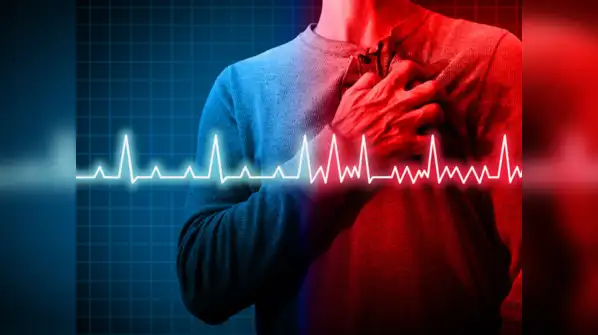
Most people imagine a heart attack as a dramatic, unmistakable event—sudden chest pain, shortness of breath, and an urgent trip to the hospital. But what if we told you that you could be experiencing a silent heart attack and not even know it?
Yes, it’s true: some heart attacks can occur without any obvious symptoms, or with signs so mild that people mistake them for stress, fatigue, or indigestion. These “quiet” episodes are called silent heart attacks, and they’re far more common—and dangerous—than many realize.
What Is a Silent Heart Attack?
A silent heart attack happens when blood flow to part of the heart is blocked, but the usual warning signs are missing or go unnoticed. This kind of heart attack may not cause intense chest pain or dramatic symptoms. Instead, it might show up as a little discomfort, lightheadedness, mild fatigue, or even a feeling of unease.
Because symptoms are subtle or absent, many people go about their day, unaware that their heart is under serious strain.
Why Silent Heart Attacks Are So Dangerous
The real danger of a silent heart attack lies in what happens afterward. If left untreated, the damage to the heart continues to build. People who experience one silent heart attack are also more likely to suffer a second—possibly fatal—attack later on.
Worse, since many of these individuals don’t realize they had a heart attack, they miss critical chances to improve their cardiovascular health, manage risk factors, and seek medical help in time.
Early Signs You Shouldn’t Ignore
Even without classic chest-clutching symptoms, a silent heart attack can produce warning signs. Recognizing these could make the difference between life and death:
Mild discomfort in the chest, upper back, or jaw
Feeling more tired than usual after light physical activity
Dizziness or lightheadedness without a clear reason
Shortness of breath, even when you’re not active
Nausea or cold sweats
A vague sense of “just not feeling right”
It’s easy to dismiss these symptoms, especially if you’re young or generally healthy. But they could be subtle heart health warning signs.
Silent Heart Attacks in Young Adults
There’s a growing trend of heart attack in young adults, especially those under 40. Poor sleep, high stress, sedentary lifestyle, smoking, and diets high in sugar and saturated fat all contribute.
In younger people, heart disease often flies under the radar because doctors and patients alike don’t expect it. But studies show that early signs of heart attack in this age group are often ignored or misdiagnosed.
This is why tech professionals, remote workers, and busy urban dwellers should pay attention. Sitting for long hours, skipping exercise, eating processed foods, and burning the candle at both ends increase your risk—even if you feel fine.
Why the Tech Crowd Should Care
If you run a tech-focused lifestyle or spend most of your day in front of a screen, you may already be at risk. Cardiovascular health is about more than age or genetics—it’s tied to how we live daily.
High screen time is often linked to sedentary behavior, poor posture, digital stress, and erratic sleep—all of which are connected to heart disease symptoms. When paired with a lack of exercise and poor diet, it forms the perfect storm for silent health issues.
What You Can Do Right Now
1. Listen to Your Body
Don’t ignore fatigue, dizziness, or random body aches. Treat them as your body’s internal tech warning system.
2. Schedule a Heart Health Check
Even if you feel healthy, an ECG or stress test can pick up issues you can’t see or feel.
3. Monitor Lifestyle Factors
Track your sleep, physical activity, and screen time. Use smartwatches or health apps to stay aware of changes.
4. Eat for Your Heart
Cut back on sodium, sugar, and unhealthy fats. Introduce leafy greens, nuts, berries, and whole grains.
5. Move More, Sit Less
Take walking breaks during your workday. Set reminders every 30 minutes to stand, stretch, or walk for a few minutes.
6. Manage Stress
Practice mindfulness, breathing exercises, or use tech-free zones in your daily routine to reduce stress.
Final Thoughts
You don’t have to feel sick to be sick. A silent heart attack can strike without warning and leave behind serious damage. The scariest part? You might feel totally fine right before it happens.
In today’s fast-paced, screen-heavy world, protecting your cardiovascular health means being proactive, not reactive. Stay informed, listen to your body, and never ignore early signs of a heart attack—no matter how small they seem.